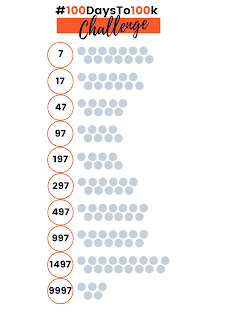Dec 20, 2024
How to price your work
Mar 22, 2022
Capacity - the hidden curse of the small trader (and how to resolve it!)
This is something that is increasingly cropping up in conversations from those looking to set up a shop or small business, and in the past, I have run this capacity question as a workshop for startups as it's a hidden issue that we don't always think about until it's too late. I regularly have chats with folk bouncing away telling me their grand ideas but on digging a little deeper they have often not fully understood how much time they need and may not have the time to achieve their fabulous idea so we need to tweak it a little. I primarly worked with hand crafters, artisans and makers so while the basic principles are always the same if you use wholesalers and resell items the capacity to make may not apply.
To give you an example of the capacity issue - let's make up Lucy the cake maker who wants to set up a cake shop. She can bake amazingly well, absolutely no issue with her products; she has all her food hygiene certificates, her FaceBook fans adore her work and she's ready to turn her current hobby into a business .... BUT her capacity needs to be considered.
For any small business start-up you must know your numbers, here's a basic breakdown of the initial key things:
1. What do you need to bring in to SURVIVE
You are a start up, survival is the aim of the game, we can get to growth and maturity later but right now we need to know the mortgage and electricity are paid! Add up all the essential regular household bills; go through your bank statement and note them down. Remember to check any subscriptions you may have too that go out quartly or yearly. Amazon Prime is an excellent example of a sneaky sudden bill you haven't factored in. Now divide that by 52 - as a start up it's easier to work weekly. Then add a contingency of 15% onto it - you will be amazed what has been left off that thorough list you made! You have to imagine you haven't made a single thing so what costs does your household incur?
1. TIME AVAILABLE TO WORK OR YOUR CAPACITY
How many hours can you realistically work at your business - you need to sleep, take small people to school, visit your Mum and see your friends from time to time. If it helps keep a little calendar check of your schedule for a week and then work out the hours you do have or could make available.
Don't assume you have 52 weeks either, if you have family you will to need to factor in school holidays, family holidays, add in time to look after a sick child and always factor in a few duvet days - you're working for yourself, not becoming a workhorse! And if you can work weekends great, but be realistic. Allow that downtime to go see a film or drinks with your friends.
I get people to print off a year planner and with a marker pen rub out all the days you are not available like your partner's birthday because you always do something special, or Sundays because that's when you visit your parents. Work out exactly how many full days you think are sensible given your personal circumstances (they will vary enormously person to person).
2. TIME TO MAKE EACH ITEM
How long does it take you to make each item - if you batch make something then work out a time for 10 or 20 perhaps but as long as you know for example 50 cakes = 2 hours from start to completion. So you now know that each hour you can work, you can make 25 cakes.
2. GROSS PROFIT
Now you need to work out how much profit you have after selling your work - ignore the time for the minute, just deduct materials cost from selling price. These are classed as your variable costs as they vary depending on how many cakes you make. It's simple when you think about it; more cakes = more flour you have to buy. Remember to include packaging! (this is considered your gross profit - net profit is when you take off rent too but we'll worry about that another day)
You now have your four basic figures to work out if you can survive, here's the basic maths:
1. Use the time per item and see how many you can make in your available time, we know 1 hour makes 25 cakes and if you can work 6 hours you can make 150 cakes2. Now multiply that number by your profit per item - again, if your cakes have a profit of £1 per cake you have £150 profit per baking day
3. Does that £150 per day multiplied by your capacity days available cover what you need to survive?
4. If yes, fantastic; if no, then what can we change?
I have often been accused of being too commercial in my approach in the past towards the small craft or artisan business but the reason is you do not start with the intention of making a loss! And without knowing your cost base (revenue and gross profit) and time (capacity) you may well accidentally end up there. Many crafters have no intention of turning it into a business and it's used to top up a wage or pay for holidays which is fine, BUT if you want it as a real business paying your mortgage and bills you do need to keep an eye on the costs and your time.
If you end up with a situation where you realise you cannot produce enough to cover your required income then look to diversify. What costs can you cut, can you create passive income from recipes online that people can pay and download off your website? Can a friend help do the deliveries to free you up to bake? Can you supply local cafes or do office lunch provision to build a customer base rather than the massive outlay of a store until you know exactly what's working for you?
Capacity is the hidden curse of the small maker - we are required to be all things at the beginning phase and everything needs doing at the same time. We have to be the maker, the accountant, the advertiser, the brand, attend events - the list is endless and can seem daunting so be sensible. Which activities use your time and generate returns? Admittedly in the beginning there won't be masses coming back as you build your portfolio, your brand, your customers, etc etc but join networking groups as it can also be incredibly lonely especially when you have to present to the world as happy and bouncy while going eekkkk not sure I can pay the mortgage this month.
I appreciate this is a very basic and simplistic start to a much bigger and more complex situation. However, it's a start and if you can arrive at some basic figures you will at least have a better idea of where you actually are. I appreciate that your working day also includes paper work, promoting, attending events, collecting supplies and an ever ongoing list - BUT once you recognise that ongoing list you can become savvy with your time management. Take the cake maker - once the oven is on she has time to do other things. You have to make time and money your friends. And I know that this is just the possible income, not the actual but we'll look at sales, promotion, how to price and so on later. First you need to know where your survival point (or break even) is. It will also help to know if you ever go to ask someone for a loan to be able to say exactly where you are, this gives people confidence that you are self aware of things.
And finally, please please enjoy what you do - you started this journey because you're passionate about what you do so even if things feel a little bleak somedays just remember why you started out.
Mar 8, 2022
You're keeping this why???
I apologise wholeheartedly to friends and family! This tidying lark gets under your skin and once you get your head around it you don’t seem to stop!
As a friend summarised:
- Go big or go home
- Reflect
- Sweep through again
- Get rid of the nigglers
- Feel smug
- Repeat
And it really is that constant appraisal, that constantly asking yourself do I really need this? That self-critique of how did I acquire 7 ice scrapers, 4 tubes of decorators caulk and yet somehow feel the need to purchase more (you know who you are!!!). I have noticed a massive head shift in how I live in my space, how I feel about my space and also how I value it. It’ll never be a show home, cats owning a home will never allow for that, but it does feel like a happy little home again. One where there aren’t piles of odd project ‘that will come in useful’ stuff.
Key deadly phrases to watch out for, if you hear yourself saying them then you may be in danger of being a closet hoarder and may need the skip of salvation to rescue you.
That MAY come in useful - ok the key word here is MAY, and just how long have you hung onto said item just in case??? If it's more than a month I can almost categorically tell you that it won't come in useful, you would have used it by now if that were the case so in the skip with it!
It’s on my reading list – really?? You had the time to make a list of things you’ll read but rather than read the book you made a list?? Skip of delusion again my friend.
It matches something I can’t remember where it is – this is my personal favorite reasoning of mine, chances are the one it matches is hiding somewhere, damaged or I’ve already thrown it out! Plus if I can’t remember where it is I clearly don’t use it. Unless it is antique, or so hard to replace it belongs in the skip of salvation.
I’ll make something out of that – again, one of my personal frailties! Like what exactly are you going to make with it??? And just how much else random rubbish will you accumulate before getting round to it?? And just how long have you been planning said project?? If the answer to any of these causes a giggle then off to the skip of salvation.
I love how inventive our self reasoning is for keeping things! Was helping a friend do her garage and it was an utter hoot finding at least 5 half opened tubes of decorating materials (I did have them too, my smugness came from having already done my tip run).
The other thing is organise stuff! Till earlier I called my kitchen cupboards the cupboards of doom, there were several duplicates, several packets of half-used things and many more things that I had clearly purchased on a whim yet gone nahh and shoved to the back of the cupboard. I have cats yes, but they do not need 5 bowls each! By going through things I was able to discover exactly what I did have, what I needed to replace and what I clearly had a zombie apocalypse survival quantity of.
It is hard that first deep breath of right, I need to tackle this. Even recognising that it needs tackling is a bit daunting. The amount you clear out questions how you fitted in the house and did my friends think me an utter slob yet didn’t want to say anything?? We have found a badge maker and suspect there will be many silly badges made such as ‘I used to be a hoarder’ and we do like the Skip of Salvation for recovering hoarders.Yes I’m making light of it, but honestly, you feel so much better for living without the chaos around you, it starts to clear your head and you feel calmer in your own skin and space. However, telling me I own too many cats and need to declutter won’t be happening soon – and anyway you have 6 bikes so nyahh!!!
Pixie x
The Ladder of Success





